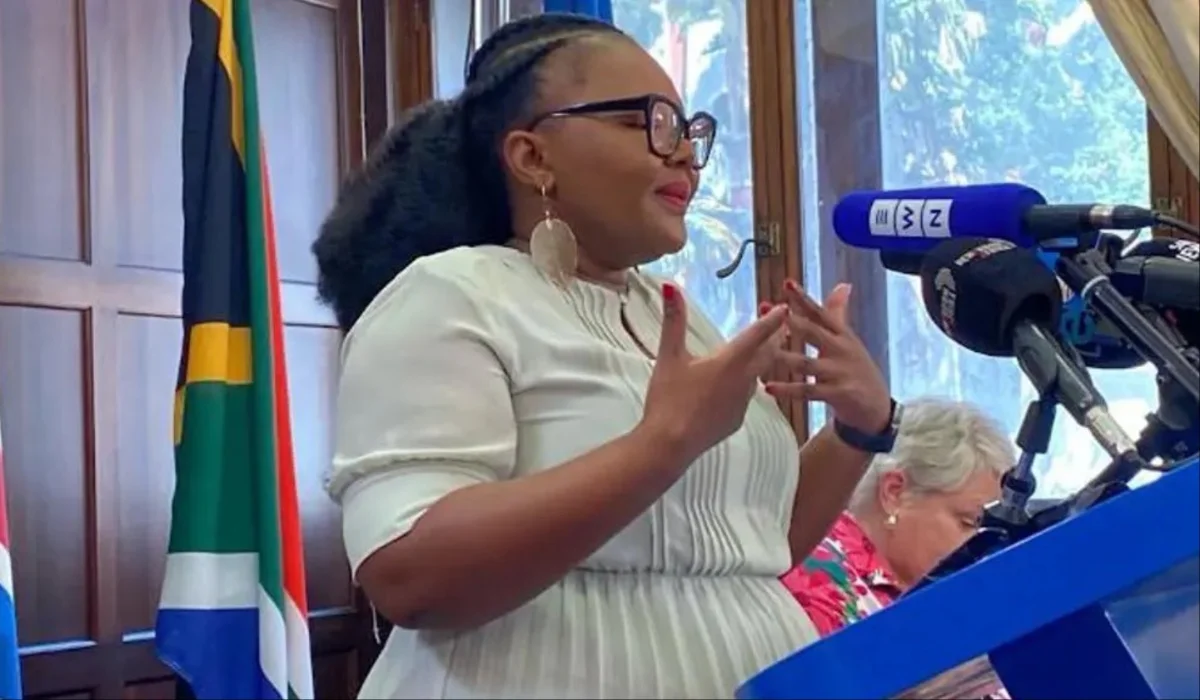In a bold and defiant move, Minister Siviwe Gwarube has chosen to abstain from attending the signing ceremony of the much-debated Basic Education Laws Amendment (BELA) Bill. This controversial bill, set to be signed by President Cyril Ramaphosa, has ignited fierce political debates across South Africa.
Initially planned for 10:30 a.m., the signing ceremony at the iconic Union Buildings in Pretoria represents a crucial juncture in the country’s educational policy. However, the absence of Gwarube, a significant figure within the Democratic Alliance, signals growing unrest and disagreement within the political landscape over the bill’s implications.
Why Siviwe Gwarube Opposes the BELA Bill
Gwarube, a prominent leader in the DA, has consistently voiced her disapproval of the BELA Bill. The legislation aims to update the South African Schools Act of 1996 and the Employment of Educators Act of 1998, reflecting the country’s changing educational needs. However, these proposed changes have not been well-received by all, particularly within the DA, which has threatened legal action to halt the bill’s progression.
ALSO READ: “Win For Mzansi”: South Africans Spit On Pravin Gordhan Following His Death
Key Areas of Concern
Among Gwarube’s principal criticisms are the provisions concerning school admissions and language policies. The bill seeks to shift decision-making power from school governing bodies to the government, which has alarmed many DA members. Furthermore, Gwarube has expressed significant concern over the proposal to make Grade R (the reception year) mandatory, arguing that the rollout should be dependent on schools’ readiness and capacity.
“I firmly oppose the BELA Bill in its current state. I’ve urged President Ramaphosa to return it to Parliament for further review. It’s critical that the bill takes into account the legitimate concerns raised, ensuring that it truly benefits learners and reflects the voice of the people,” Gwarube stated.
Political Battle Over Educational Reform
The introduction of the BELA Bill has triggered a heated political debate, with the DA strongly contesting its provisions. The party warns that the bill if signed into law, may lead to drawn-out legal battles. In contrast, other political groups, including the Economic Freedom Fighters (EFF) and the GOOD party, have come out in full support of the proposed amendments.
EFF national spokesperson Leigh-Ann Mathys argued that the bill is essential to address the deep-rooted inequalities in the education system, many of which are perpetuated by the current school governance structures. Similarly, GOOD party secretary-general Brett Herron dismissed the DA’s opposition as exaggerated, stating that the bill aims to confront authentic challenges within the education sector and aligns with the Constitution and judicial precedents.
ALSO READ: ‘That’s My Michelle’: Woman Linked to Shannon Sharpe in Viral Video Finally Responds
Gwarube’s Boycott: A Sign of Growing Divisions
Gwarube’s decision to boycott the signing event signals a deepening divide within the Government of National Unity over the direction of educational reform. Her absence underscores the ongoing contention surrounding the BELA Bill, which has become a focal point for broader political disagreements over how best to tackle inequality and improve access to education in South Africa.
With key players on opposing sides of the debate, the future of the BELA Bill remains uncertain. As the dust settles, the discourse around South Africa’s educational policies continues to reflect the complex and often polarizing nature of governance in the country.
